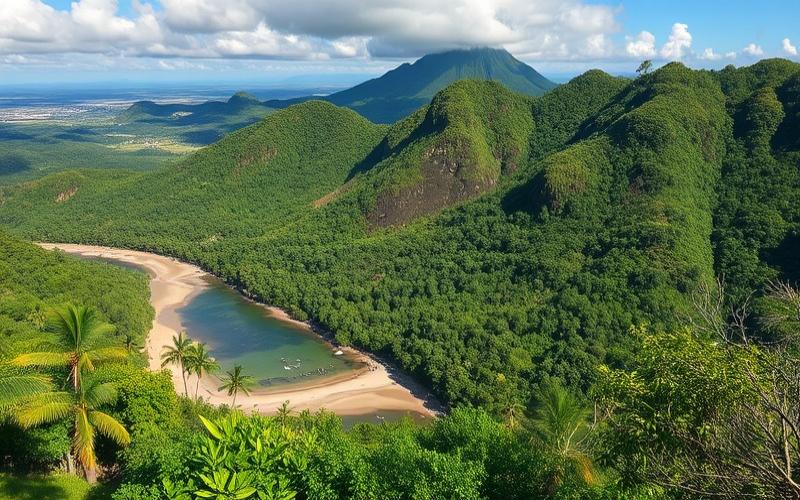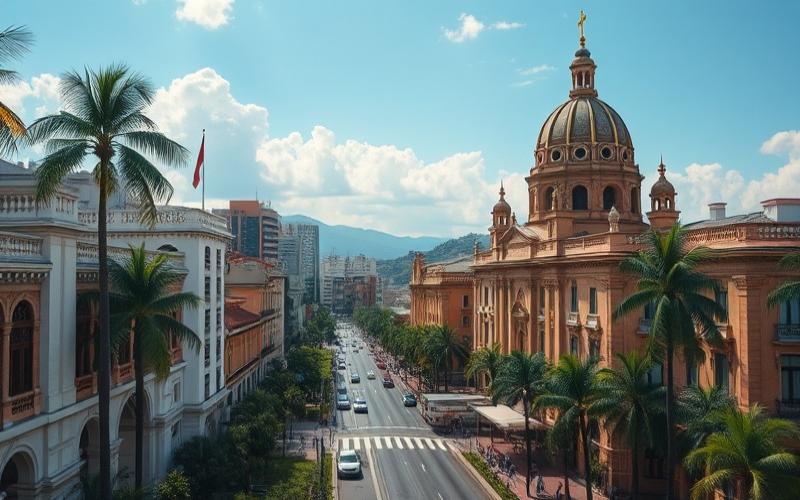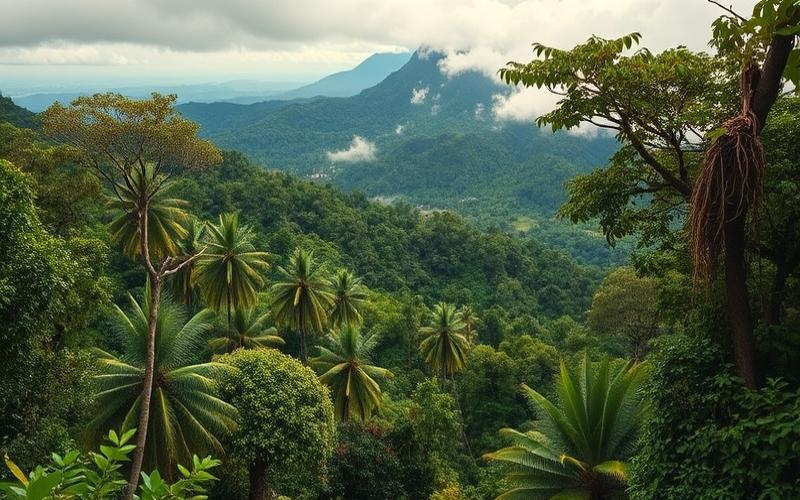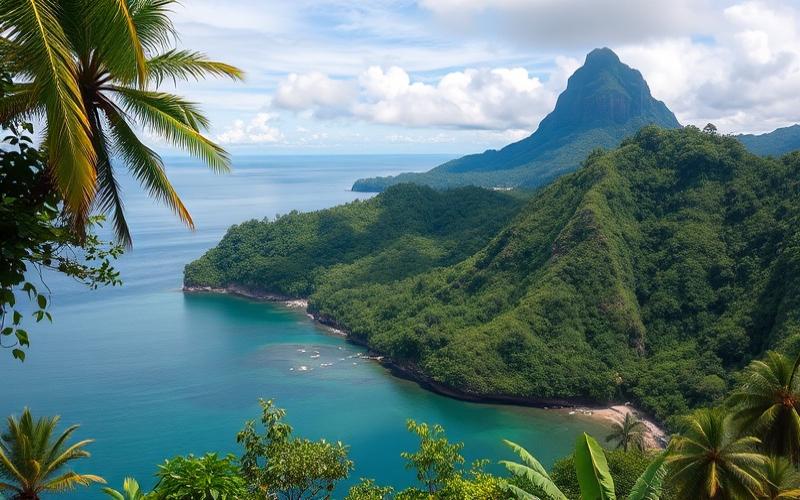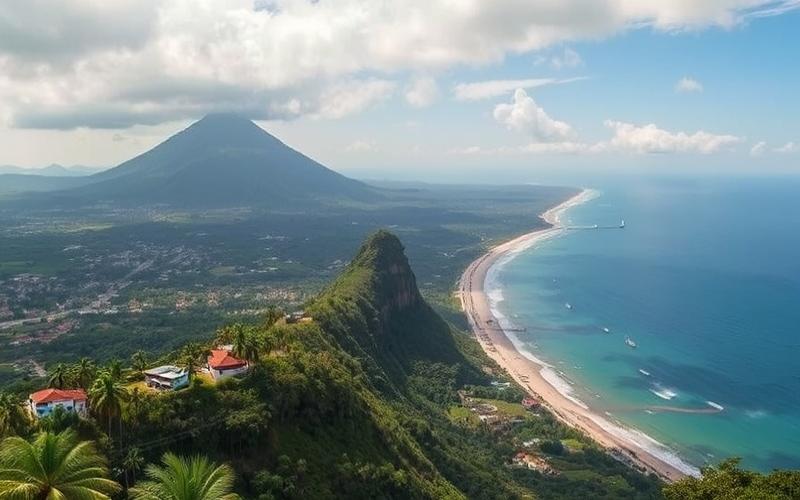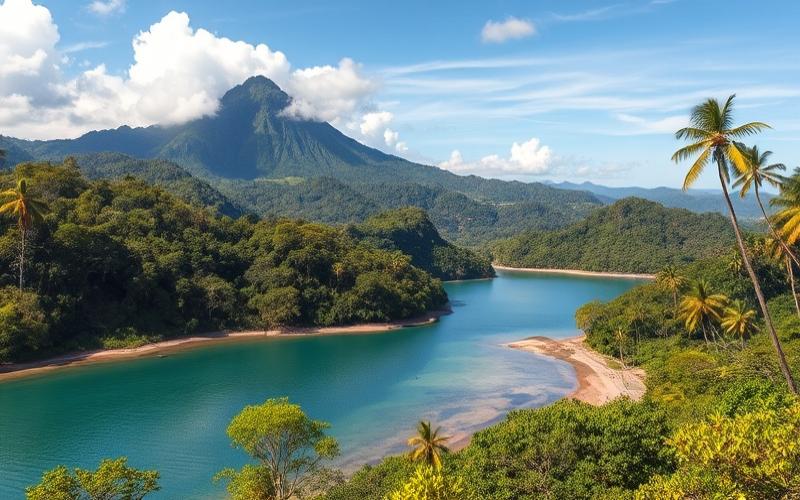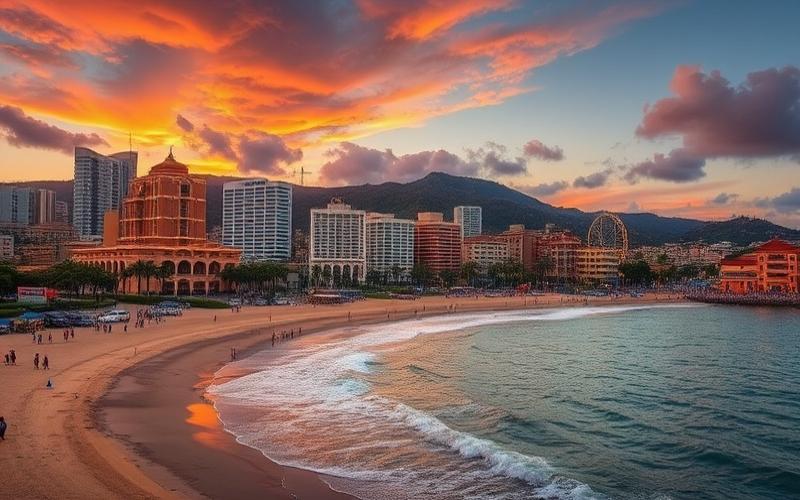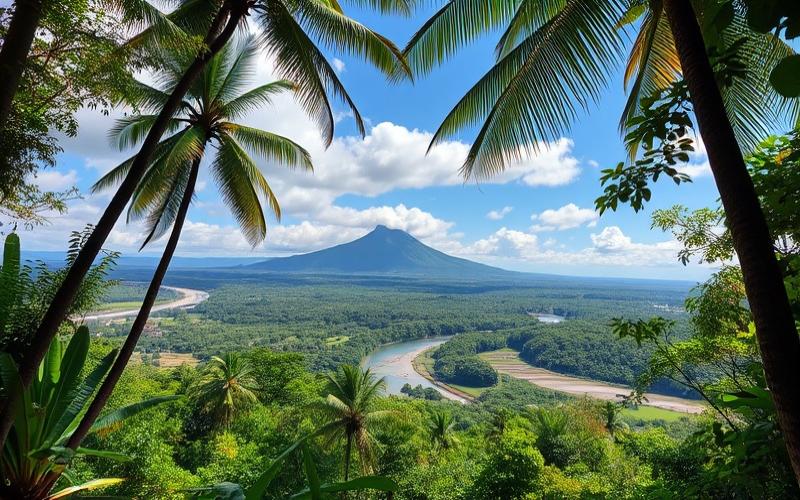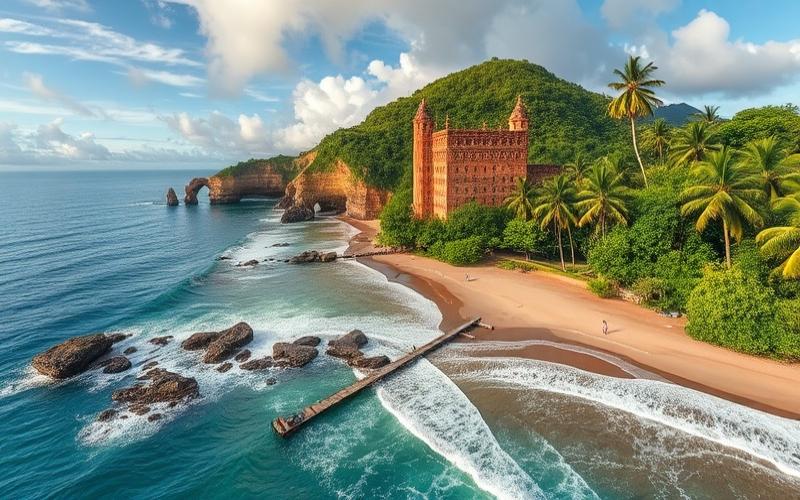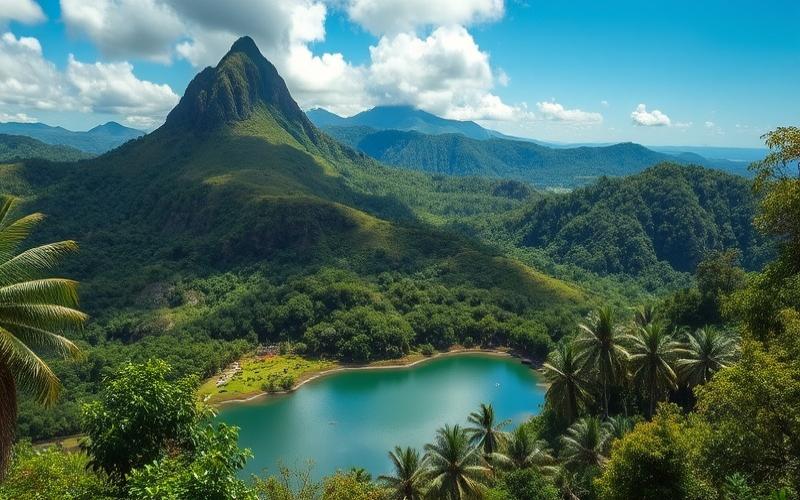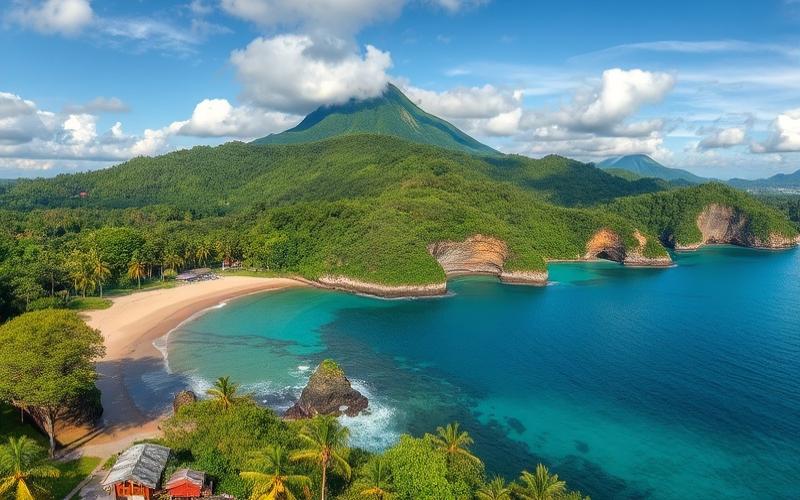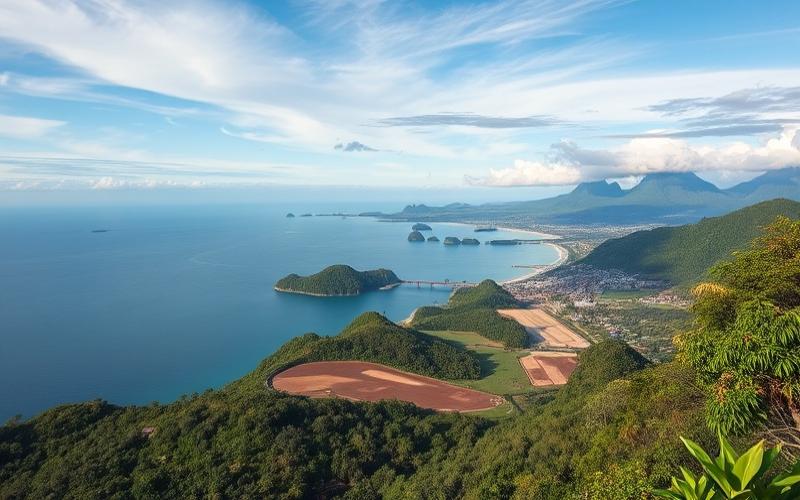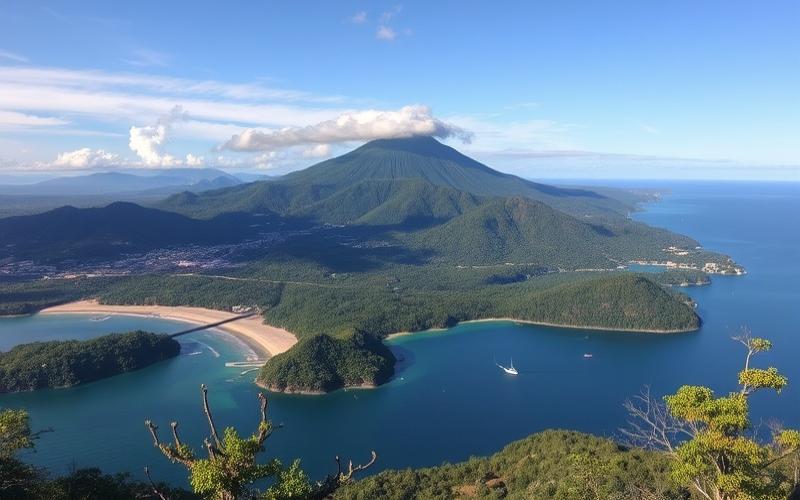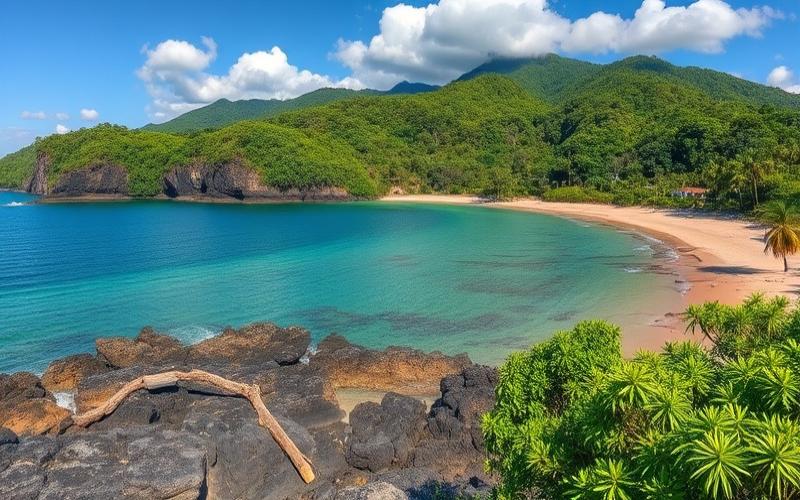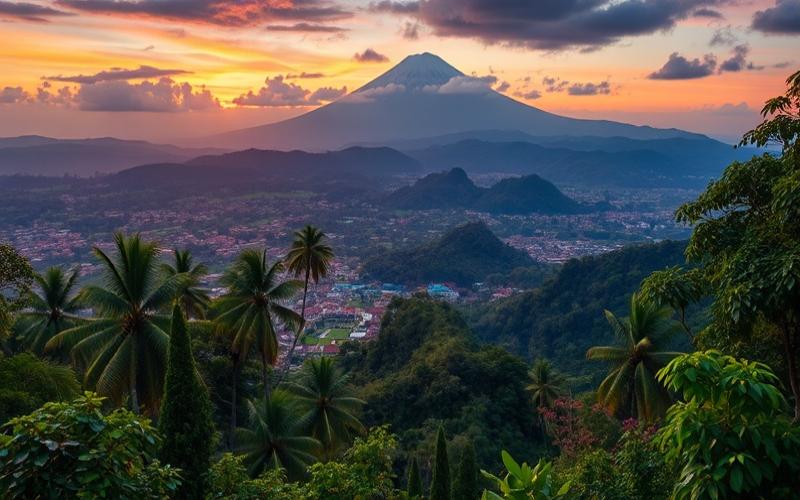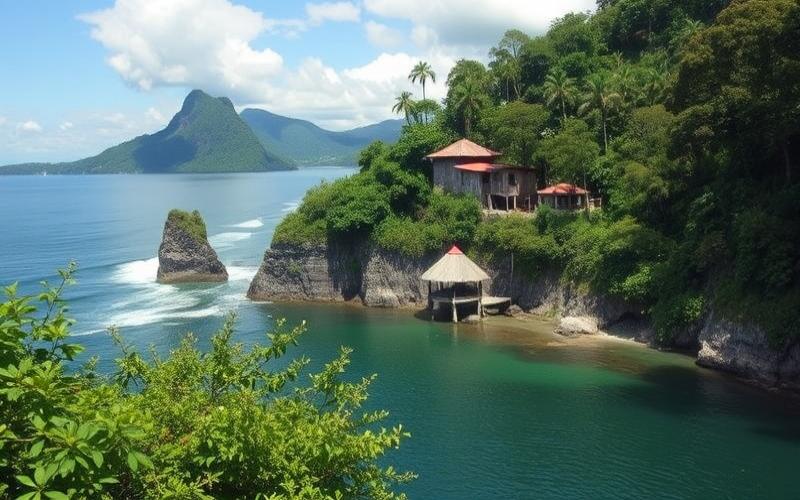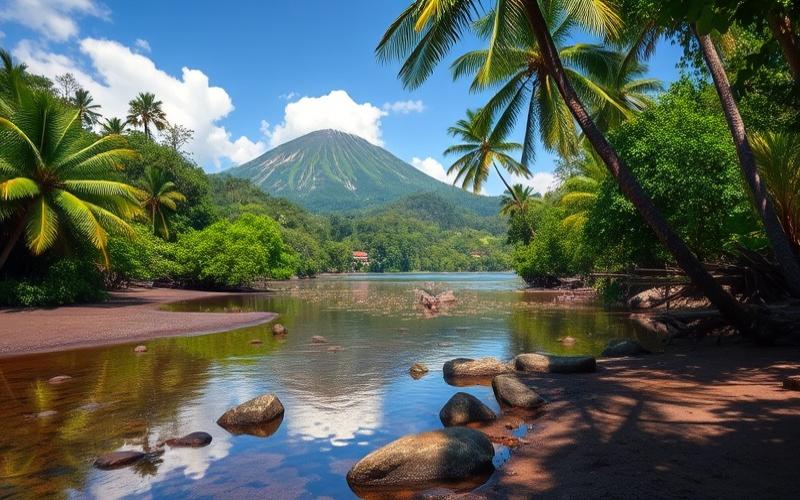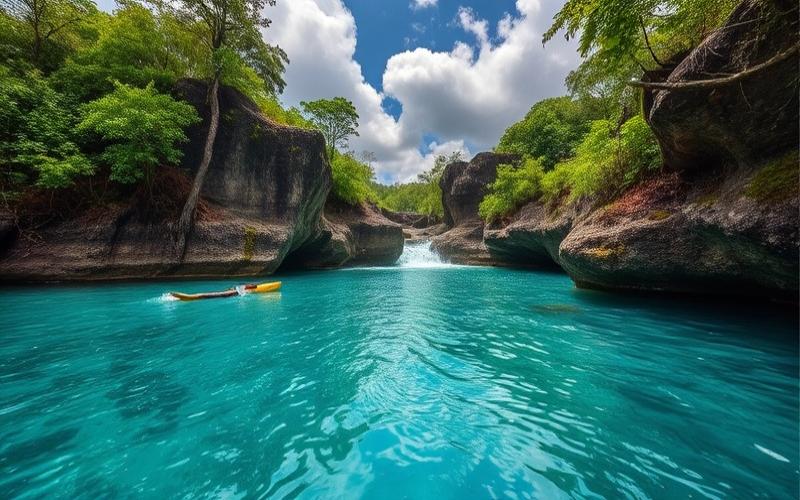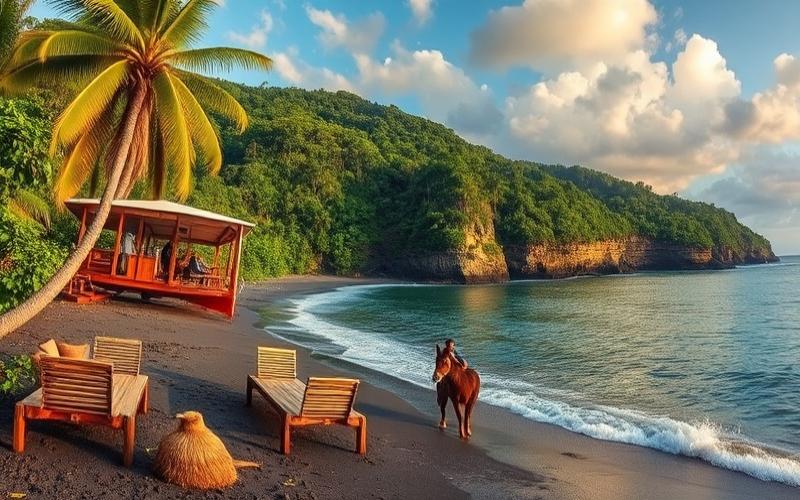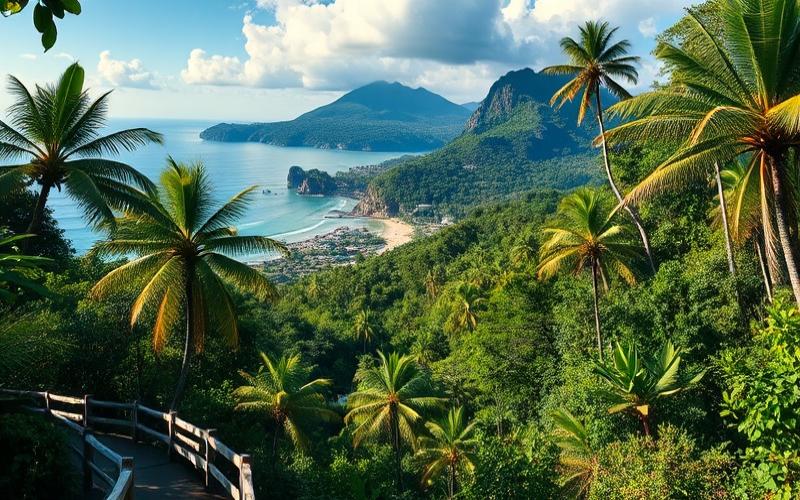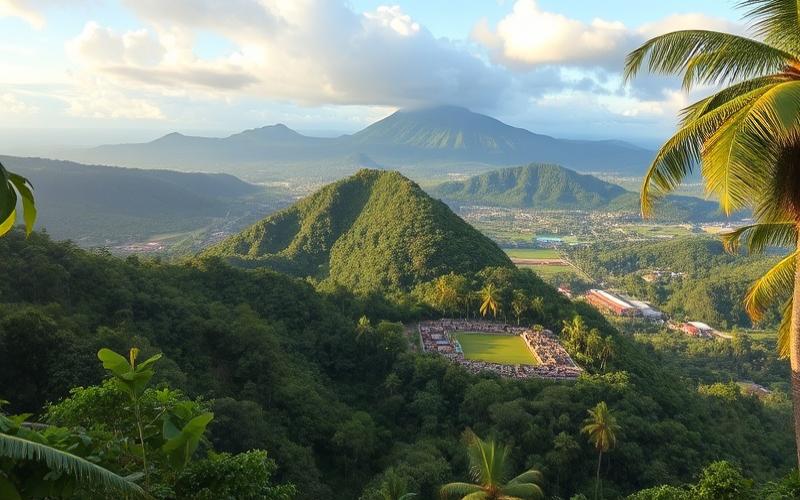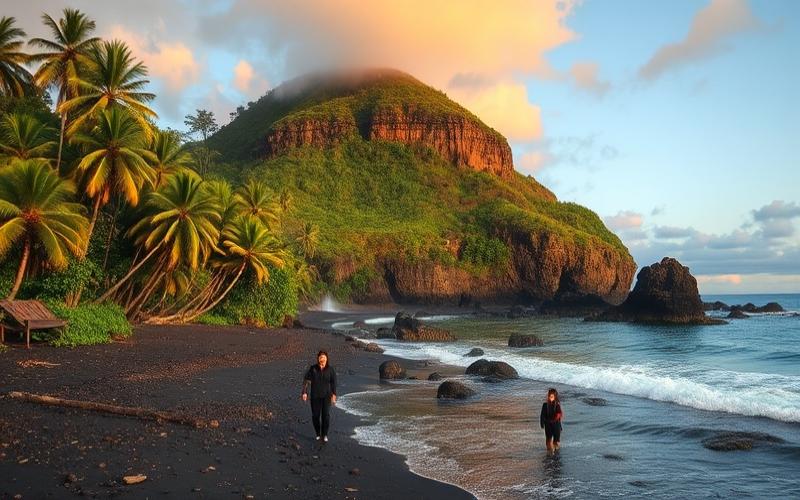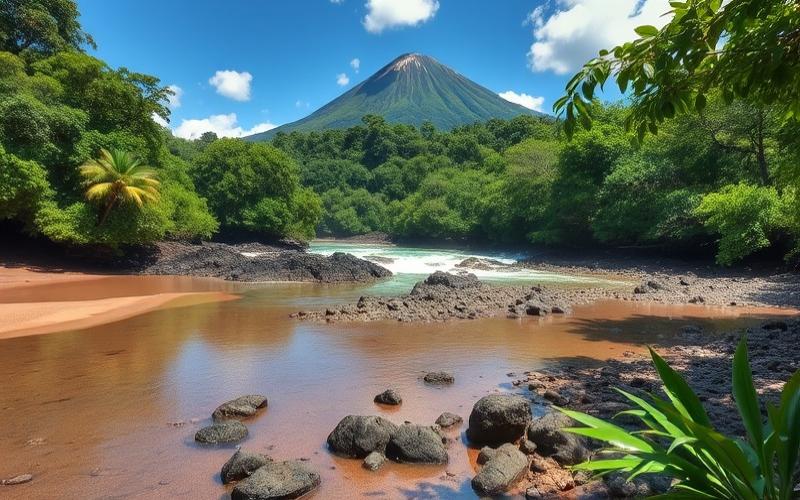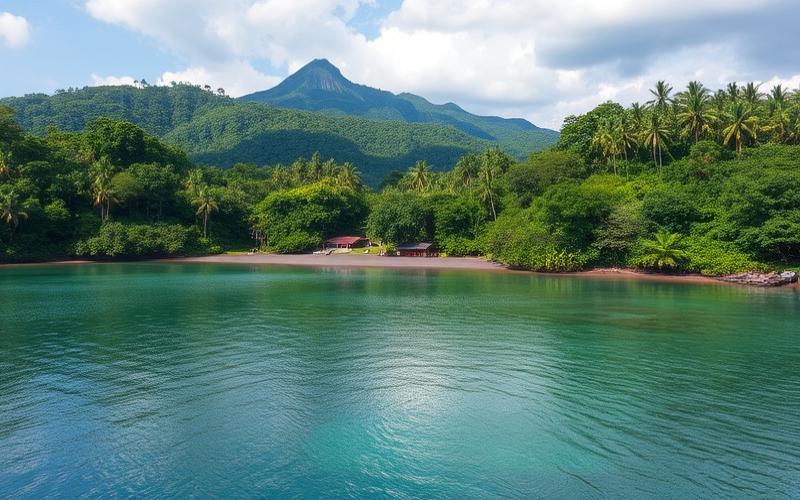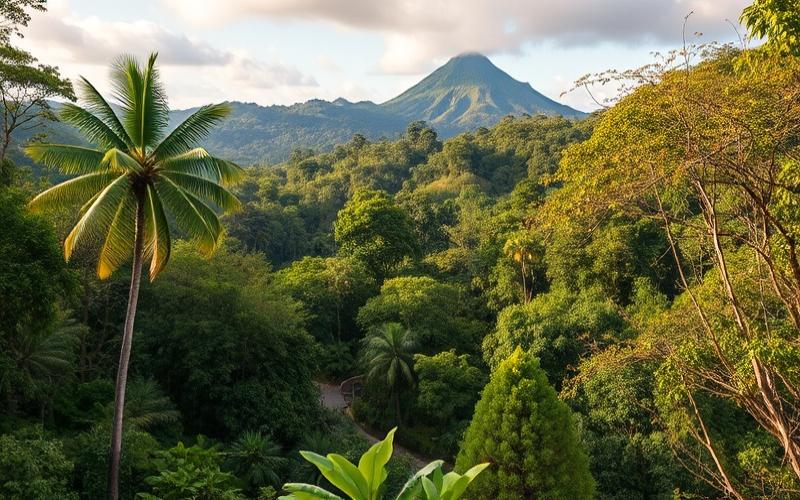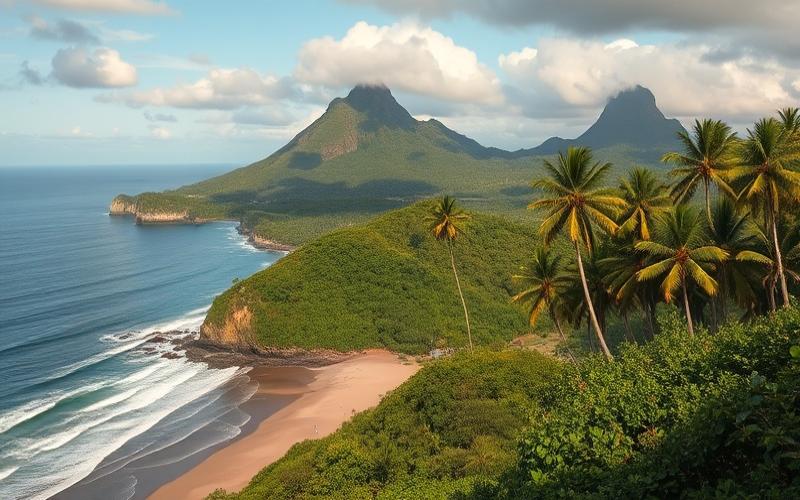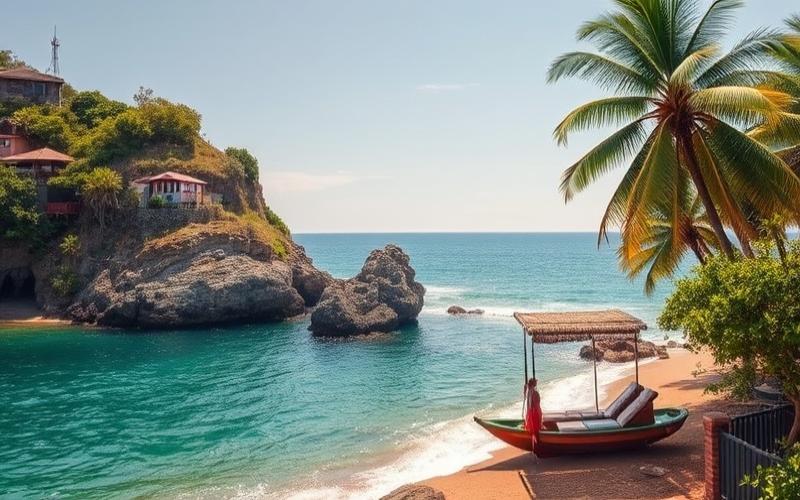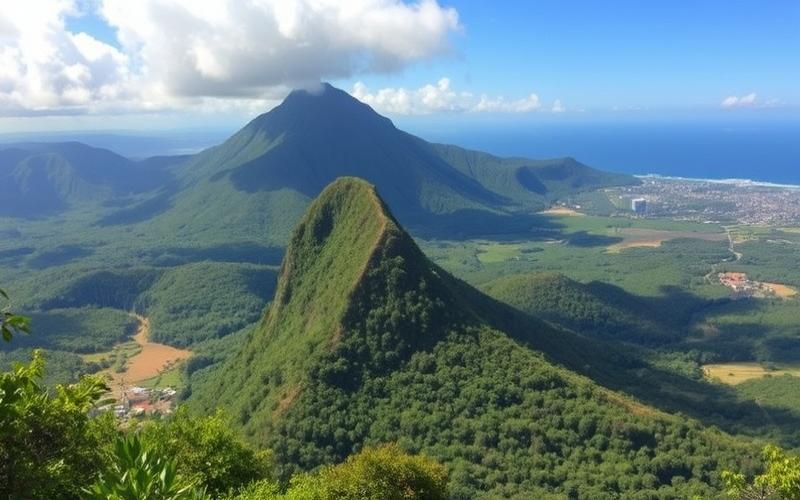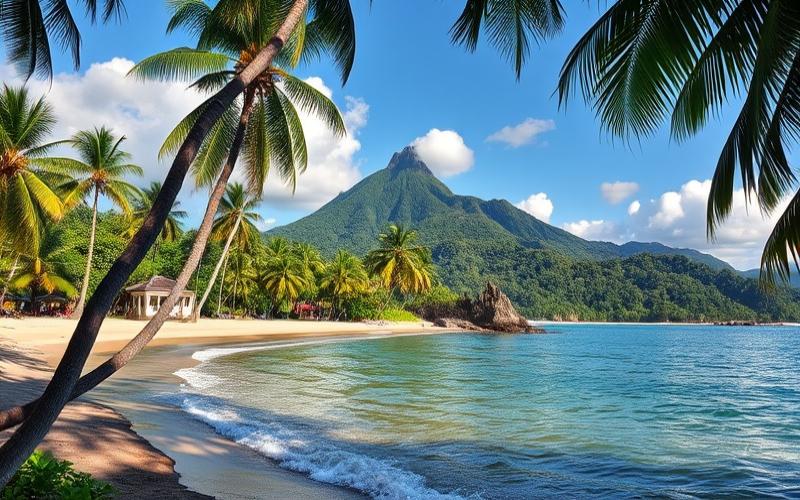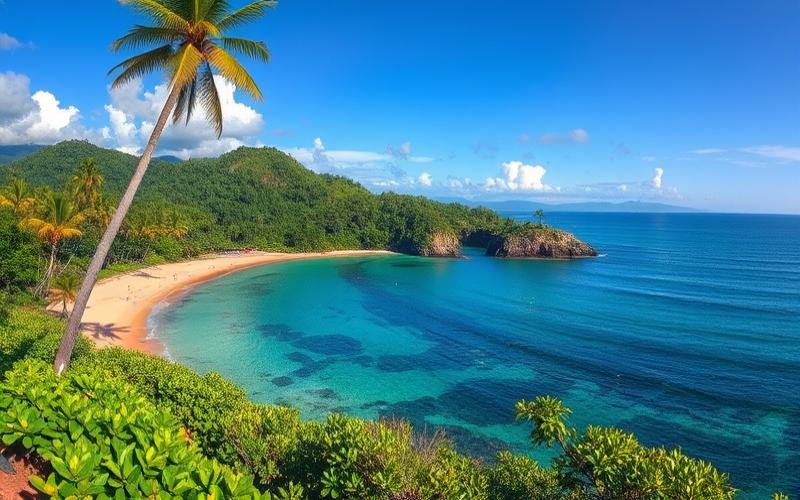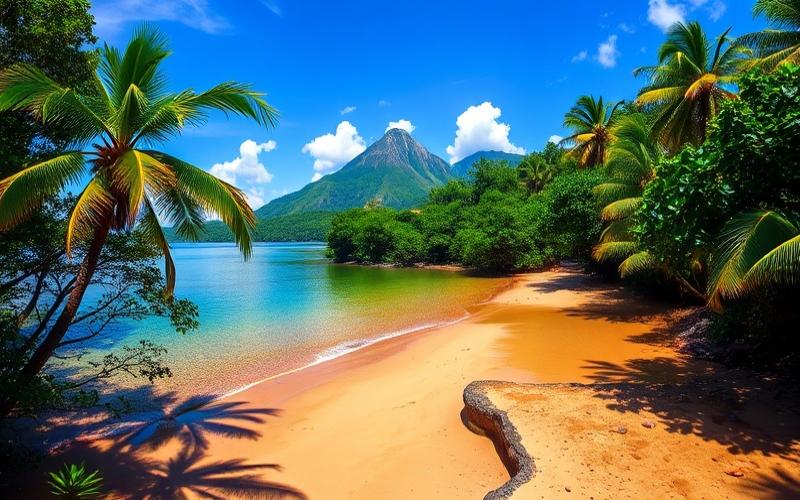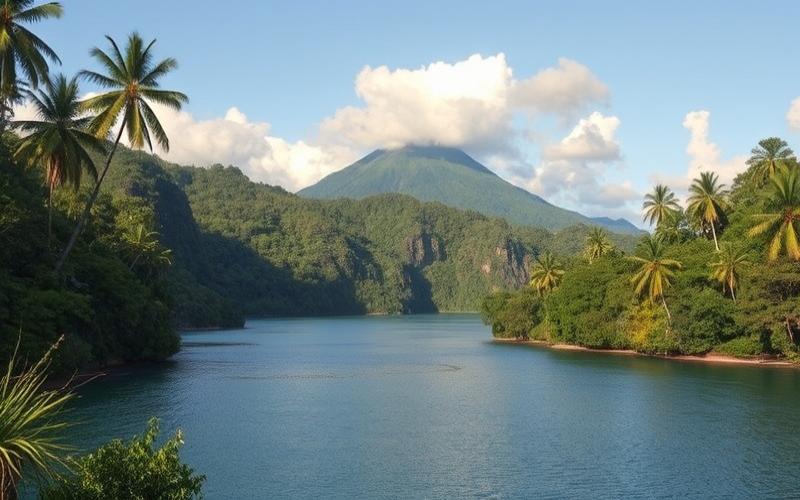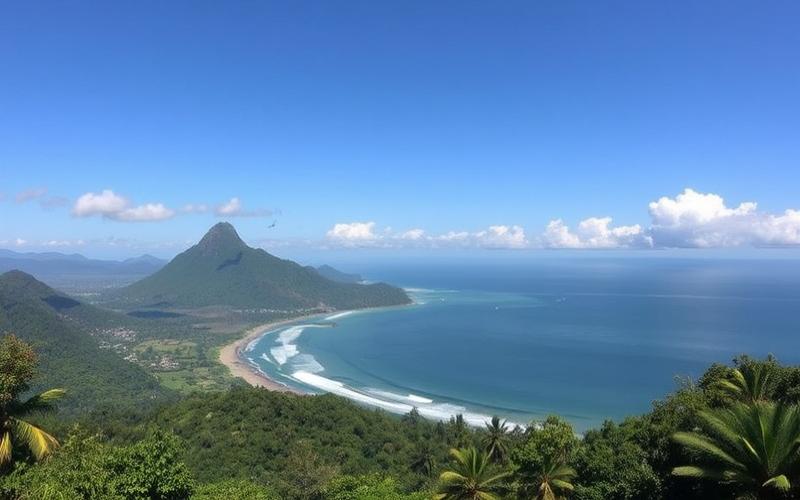
 Published on and written by Cyril Jarnias
Published on and written by Cyril Jarnias
Purchasing Real Estate in Costa Rica
Purchasing real estate in Costa Rica is a dream for many, thanks to its stunning landscapes and pleasant climate. However, finding adequate financing to make this project a reality can seem complex.
Whether you’re an experienced investor or a first-time buyer, it’s crucial to understand the financial mechanisms in place and know the available loan options for non-residents.
Practical Guide for Your Real Estate Project
This practical guide will walk you step by step through the process, providing valuable advice on how to maximize your borrowing capacity and exploring the specifics of the Costa Rican financial market.
Embark on this adventure to navigate smoothly toward achieving your real estate dream in the heart of this tropical paradise.
Good to Know:
Non-residents can access real estate loans in Costa Rica, but terms and rates may vary depending on financial institutions.
Real Estate Financing in Costa Rica: Is It Possible for Foreigners?
Prerequisites for Foreigners Seeking Real Estate Financing in Costa Rica
Main Eligibility Criteria:
- Be 18 years of age or older.
- Provide proof of stable and verifiable income (pay stubs, tax returns, bank statements).
- Present a good international or local credit history.
- Provide a significant personal down payment, typically between 30% and 50% of the purchase price for non-residents.
- Meet the maximum debt-to-income ratio required by the bank (often around 33% of net monthly income).
Commonly Required Documents:
- Valid passport.
- Official proof of current residence abroad (recent utility bill, certificate).
- Income verification (employment contracts, employer letters, pay stubs, or financial statements if self-employed).
- Recent tax returns.
- Bank statements for several months.
- Letter of intent regarding the real estate purchase.
Local Financial Institutions Offering Loans to Non-Residents
| Institution | Loans for Non-Residents | Maximum Term | Minimum Down Payment |
|---|---|---|---|
| Public Banks | Yes | Up to 30 years | 30–50% |
| Private Banks | Yes | Up to 20–25 years | 30–50% |
| Cooperatives/Credit Unions | Sometimes | Variable | Variable |
Most major Costa Rican banks now offer packages tailored to foreigners. Some international agencies present in the country also have their own specific conditions.
Available Financing Types
Conventional Mortgage Loans:
- Repayment over terms that can extend up to 20 to 30 years, depending on the applicant’s profile and age
- Significant down payment required
- Fixed or variable rates
Direct Financing by Real Estate Developers:
- Increased flexibility on documentation
- Large initial payments required
- Often shorter terms (3 to 5 years) with high final payment (“balloon payment”)
Typical Interest Rates and Offered Terms
Rates vary by institution but are generally between:
- 7% and 12% annually, with a tendency to be higher than in some North American or European markets for non-residents
Maximum terms are often:
- Up to 20–30 years for permanent residents/citizens
- Generally limited to 15–25 years, sometimes less (10–15 years) for certain foreign profiles
Practical Tips to Maximize Your Approval Chances
Strategic Checklist to Optimize Your Application:
- Carefully prepare all financial documents translated into Spanish if possible.
- If needed, opt for co-purchase through a local company to increase credibility with the lender.
- Maintain an excellent banking/financial score in your home country.
- Consult a specialized local broker familiar with requirements for foreigners.
- Anticipate the high required down payment so the application isn’t rejected due to insufficient liquidity.
Key Differences Between Resident vs Non-Resident Financing
| Criterion | Resident | Non-Resident |
|---|---|---|
| Minimum Down Payment | ~10 – 20 % | ~30 – 50 % |
| Documentation | Simpler | Required extensive verification |
| Interest Rate | Slightly lower | Slightly higher |
| Term | Maximum allowed | Reduced maximum |
Challenges & Specific Considerations for Foreigners
Main Lists:
- Increased administrative delays due to thorough review of international files
- Frequent need for certified translations
- Legal requirement that all transfers be notarized before a Costa Rican lawyer
- Possible rate fluctuations depending on local/international economic context
- Less flexibility in case of no banking history in Costa Rica
Key Takeaway: The market has opened up in recent years but remains demanding toward those not fiscally resident in Costa Rica; it’s therefore advisable to prepare your application several months before any actual steps.
Good to Know:
Foreigners wishing to obtain real estate financing in Costa Rica generally need to provide documents such as bank statements, proof of income, and valid identification. Although local financial institutions, like Banco de Costa Rica and Banco Nacional, offer loans to non-residents, they often face higher interest rates and shorter loan terms than residents. Solutions include conventional mortgages and direct financing by real estate developers, which can sometimes be more flexible. Foreigners can maximize their approval chances by proving stable financial standing and having a good international credit history. One major challenge remains the need to provide local collateral or a strong co-signer, and it’s crucial to understand the differences in treatment between residents and non-residents.
Preparing Your Application: Essential Documents for Your Real Estate Loan
Detailed list of documents required for a real estate loan in Costa Rica:
- Valid identification (passport or resident card)
- Proof of income:
- Recent pay stubs
- Tax returns from the last two to three years
- Employment verification or work contract
- Bank statements for the past twelve months
- Bank reference letter(s)
- Proof of address (electricity, water, phone bill)
- Duly completed “Know Your Customer” (KYC) form for anti-money laundering compliance
| Document | Role / Purpose |
|---|---|
| Identification | Verification of identity and legal status in the country |
| Proof of income | Assessment of repayment capacity |
| Bank statements | Analysis of financial flow and stability |
| Bank letter(s) | Additional guarantee of financial management |
| Proof of address | Confirmation of local address |
| KYC form | Regulatory anti-money laundering compliance |
Documents related to the property in question:
- Property title (“escritura” or cadastral registration number): verification through the Costa Rican national registry to ensure the property is free of mortgages and the seller is the rightful owner.
- Signed preliminary contract or purchase offer
- Independent property appraisal (“avaluo”), often required by local banks
Additional documents depending on borrower profile:
For foreign investors:
- Certified translations into Spanish of documents issued outside Costa Rica (statements, contracts, proofs…)
- Clear and documented proof of the origin of invested funds (source of funds) – particularly scrutinized in Costa Rica due to strict anti-money laundering rules.
For entrepreneurs/self-employed:
- Recent personal financial statements
- Certified annual accounts by an accountant if owning a business
Local specifics influencing requirements:
- Costa Rican banking standards impose heightened vigilance on the lawful origin of funds. Therefore, provide all necessary proofs without omission to avoid administrative blockage.
- For any document written in a language other than Spanish, systematically require an official certified translation, otherwise the application will be rejected.
- Non-residents generally need to present a more comprehensive application. Some banks do not systematically grant loans to non-residents without additional guarantees.
Practical tips for organizing your application efficiently:
- Prepare each document in duplicate: original + scanned copy.
- Classify all proofs by category (identity, personal finances, target property) in both physical and digital folders.
- Legalize/apostille all foreign official documents before certified translation.
- Regularly check with the chosen lender for the exact required list as it may vary by banking institution.
- Anticipate: gather from the start all proofs related to the legal origin of funds to avoid any delays during local regulatory checks.
Always ensure each document is recent (less than 3 months old) and valid to avoid any administrative rejection.
Investment Conditions: How to Access Real Estate Financing in Costa Rica?
To invest in real estate in Costa Rica, certain conditions must be met and specific procedures followed, whether you’re a resident or non-resident.
Eligibility Criteria and Investment Conditions
- Residents and non-residents: Foreigners enjoy the same property rights as Costa Rican citizens through the “fee simple” ownership regime, which grants full control over the property (sale, rental, transfer).
- Residency by investment: To obtain residency, you must invest at least $150,000 in eligible assets, including real estate. This threshold allows access to investor residency, facilitating life on-site and access to banking services.
Available Real Estate Loan Types
- Conventional mortgage loans offered by local banks.
- Loans from private financial institutions, often more flexible but with higher rates.
- Seller financing (the owner finances part of the price), rarer but possible in some transactions.
Approval Criteria and Financing Terms
- Financing amount: Banks generally finance between 50% and 70% of the property value, with the remainder to be provided as equity (down payment/initial deposit).
- Down payment/deposit: A down payment of 30% to 50% is often required, especially for non-residents.
- Guarantees: The real estate property serves as mortgage collateral. Other guarantees or proof of income (local or foreign) may be required.
- Interest rates: Rates typically range from 7% to 10% depending on the bank, borrower profile, and loan currency (colón or US dollar).
- Term: Loans are generally granted for 15 to 30 years.
Loan Comparison Example
| Loan Type | Minimum Down Payment | Interest Rate | Max. Term | Main Guarantees |
|---|---|---|---|---|
| Local Bank | 30-50% | 7-10% | 15-30 years | Mortgage on property |
| Private Institution | 40-50% | 9-12% | 10-20 years | Mortgage, personal guarantees |
| Seller Financing | Negotiable | Variable | Variable | Often the property itself |
Administrative and Legal Procedure
- Notary: The public notary plays a central role. They verify title validity, draft the sales deed, ensure tax payments, and handle registration.
- Registration: The property must be registered with the National Registry (Registro Nacional) to guarantee the legal security of the transaction.
- Due diligence: Verification of property background (absence of mortgages or disputes), urban planning permits, and compliance with property tax payments.
- Fees: Notary and registration fees are relatively low (approximately 0.25% of the fiscal value).
Specifics of the Costa Rican Real Estate Market
- Tax advantages: Little or no taxation on real estate capital gains, wealth, or inheritance.
- Property tax: Low annual property tax (0.25% of fiscal value).
- Stability: Protective legal framework for foreign investors, modern infrastructure in attractive regions, strong rental demand in tourist and coastal areas.
- Legislative flexibility: Simplified purchase procedures and no restrictions for foreigners (except protected maritime zones and concessions).
Key Takeaways
- Foreigners can purchase freely, but residency requires a minimum investment.
- Personal down payment remains important and loans are granted based on strict solvency criteria.
- The purchase process is secure but requires notary involvement and property registration.
- The market offers tax advantages and strong appeal, particularly in tourist areas.
Important Information
For any purchase, it’s highly recommended to use an experienced notary and verify the property’s legal status with the National Registry.
Good to Know:
In Costa Rica, residents and non-residents can access real estate financing subject to certain conditions, such as creditworthiness assessments and proof of stable income. Non-residents often need to provide more guarantees, like a 30% down payment, and have a local bank account. Loan types include conventional mortgages, typically with interest rates ranging between 6% and 8%, depending on the applicant’s history. Financial institutions evaluate repayment capacity and frequently require mortgage insurance. The process involves notaries to formalize transactions, and property registration with the National Registry is crucial. The Costa Rican real estate market has specific dynamics, particularly in tourist areas where property demand is constantly increasing, leading to unique features like private financing offers.
Disclaimer: The information provided on this website is for informational purposes only and does not constitute financial, legal, or professional advice. We encourage you to consult qualified experts before making any investment, real estate, or expatriation decisions. Although we strive to maintain up-to-date and accurate information, we do not guarantee the completeness, accuracy, or timeliness of the proposed content. As investment and expatriation involve risks, we disclaim any liability for potential losses or damages arising from the use of this site. Your use of this site confirms your acceptance of these terms and your understanding of the associated risks.

